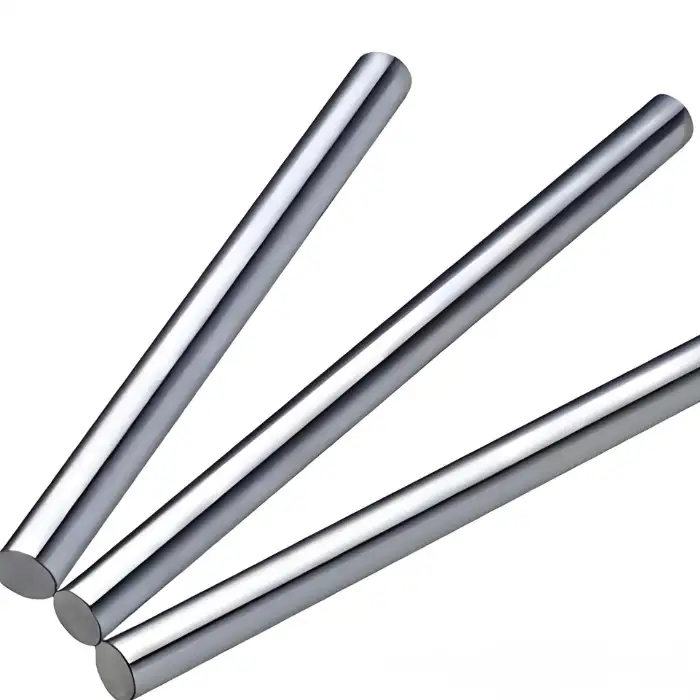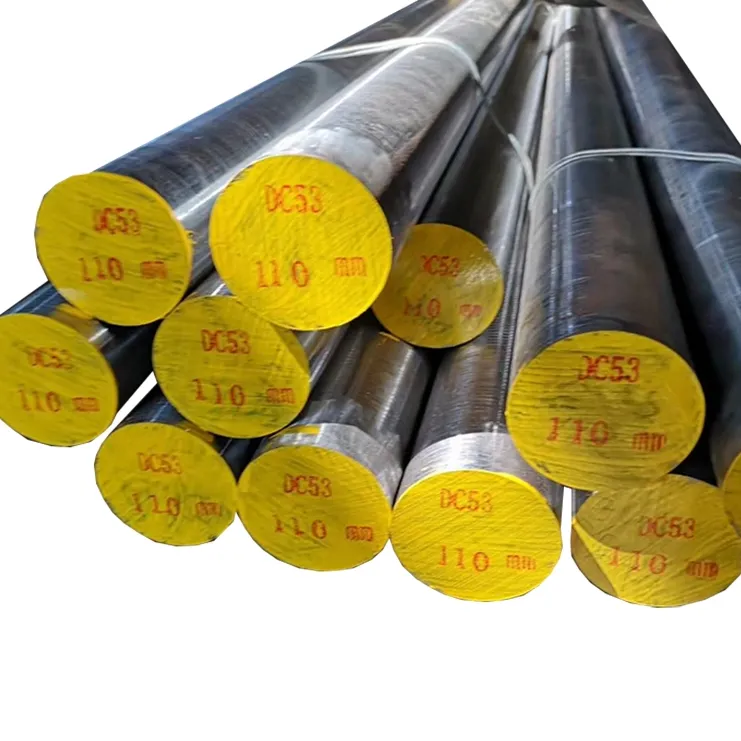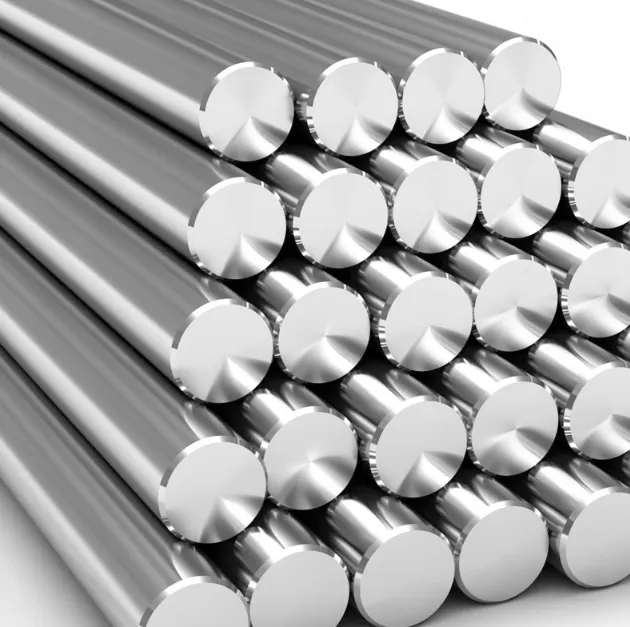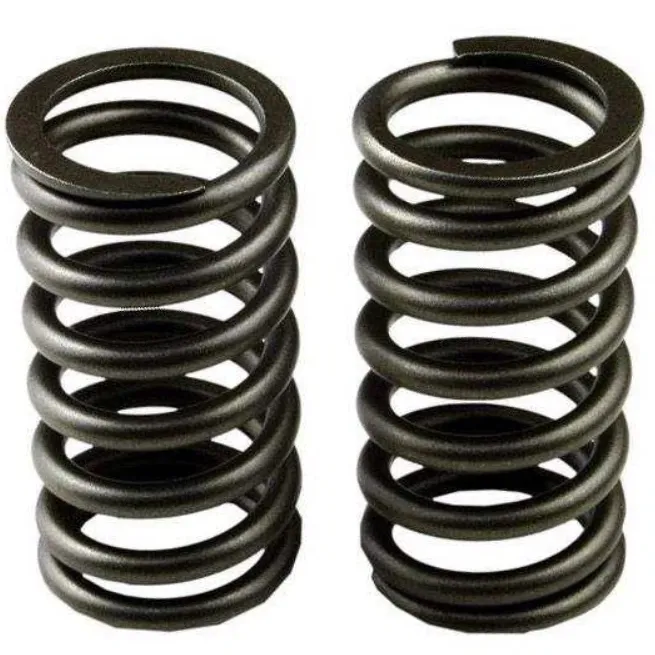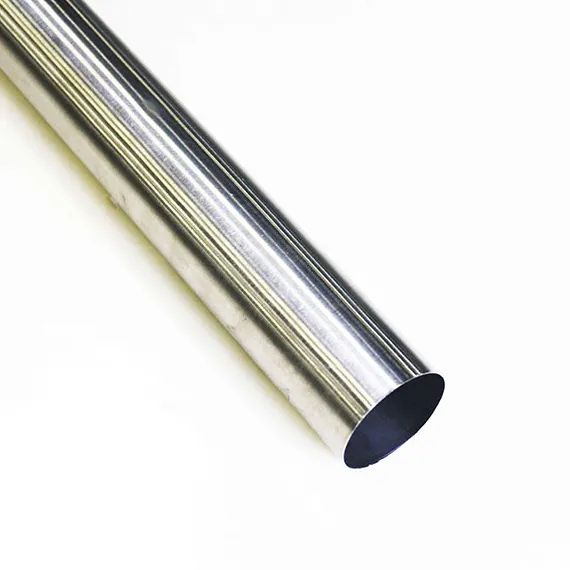At MWalloys, we manufacture and supply Inconel Alloy 718 Bars that meet the highest standards of strength, durability, and corrosion resistance—ideal for critical aerospace, power generation, and industrial applications. Engineered to excel in the harshest environments, our Inconel 718 bars deliver long-lasting performance at elevated temperatures and under high stress.
What Is Inconel Alloy 718?
Inconel® Alloy 718 is a precipitation-hardenable nickel-chromium alloy known for its exceptional tensile strength, fatigue resistance, and creep-rupture properties at temperatures up to 1300°F (700°C). Developed in the 1950s, it remains one of the most widely used high-performance alloys in aerospace and energy sectors.
Unlike many other nickel alloys, Alloy 718 uses a unique niobium (Nb) addition for strengthening, enabling a much more stable aging process and weldability compared to gamma prime-reinforced systems.
Standard Overview & Key Properties
*(UNS N07718 / W.Nr. 2.4668 / GH4169)*
| Parameter | Specification | Key Notes |
|---|---|---|
| Scope | Hot-finished/cold-finished bars for extreme environments (-253°C to 704°C) | Superior creep resistance up to 650°C |
| Conflict Priority | 1. Purchase Order > 2. Product Spec > 3. ASTM/AMS Standards | Mandatory tests: ultrasonic, hardness |
| Grades | Grade 1 (Annealed): General use Grade 2 (Solution Annealed + Aged): Aerospace/nuclear |
Grade 2 required for ASME Section III |
| Key Advantages | • High Strength: 1240 MPa tensile at 20°C • Corrosion Resistance: Immune to chloride/SCC • Fabrication: Excellent machinability vs. other superalloys |
Avoids post-weld stress cracking |
🔬Chemical Composition & Mechanical Properties
Chemical Composition (wt%, Max Unless Noted)
| Element | Inconel 718 | Inconel 625 | Role in Alloy 718 |
|---|---|---|---|
| Ni | 50–55 | ≥58 | Austenite matrix stability |
| Cr | 17–21 | 20–23 | Oxidation resistance |
| Nb+Ta | 4.75–5.50 | 3.15–4.15 | γ″ phase strengthening (primary) |
| Mo | 2.80–3.30 | 8.0–10.0 | Solid-solution hardening |
| Ti | 0.65–1.15 | ≤0.40 | γ′ phase strengthening (secondary) |
| Al | 0.20–0.80 | ≤0.40 | Oxide layer formation |
| S | ≤0.015 | ≤0.015 | Weldability control |
Mechanical Properties (Solution Annealed + Aged)
| Property | Grade 1 | Grade 2 | Test Standard |
|---|---|---|---|
| Tensile Strength (min) | 930 MPa | 1240 MPa | ASTM E8/E8M |
| Yield Strength (0.2%) | 482 MPa | 1030 MPa | ASTM E8/E8M |
| Elongation (min) | 45% | 12% | ASTM E8/E8M |
| Hardness (max) | 287 HBW | 45 HRC | ASTM E10/E18 |
| Creep Rupture (704°C) | 480 MPa | 620 MPa | ASTM E139 |
📏Dimensional Tolerances & Common Sizes
(Per ASTM B637 & AMS 5662)
Bar Shapes & Standard Dimensions
| Shape | Size Range | Tolerance | Surface Finish |
|---|---|---|---|
| Round Bar | Ø12.7–254 mm (0.5–10") | ±0.1 mm (≤50mm), ±0.2% (>50mm) | Peeled/Turned |
| Hex Bar | 10–100 mm (across flats) | ±0.15 mm | Sandblasted |
| Flat Bar | 5–50 mm (T) × 20–200 mm (W) | ±0.2 mm (T), ±0.3 mm (W) | Mill finish (No. 1) |
Theoretical Weight Table (Round Bar)
| Diameter (mm) | Weight (kg/m) | Diameter (in) | Weight (lb/ft) |
|---|---|---|---|
| 12.7 | 1.00 | 0.5 | 0.67 |
| 25.4 | 4.00 | 1.0 | 2.68 |
| 50.8 | 16.00 | 2.0 | 10.74 |
| 76.2 | 36.00 | 3.0 | 24.16 |
| 152.4 | 144.00 | 6.0 | 96.64 |
⚖️ Weight Formula:
Metric:Weight (kg/m) = [Ø (mm)]² × 0.00620
Imperial:Weight (lb/ft) = [Ø (in)]² × 2.64
🌐Global Grade Comparison
| Alloy | Tensile (MPa) | Max Temp | Key Advantage vs. 718 | Limitation |
|---|---|---|---|---|
| Inconel 718 | 1240 | 704°C | Best strength/weldability balance | Lower HCl resistance |
| Waspaloy | 1170 | 815°C | Higher temperature capability | Poor weldability |
| Inconel 625 | 830 | 1093°C | Superior oxidation resistance | 30% lower strength |
| GH4169 (GB) | 1180 | 650°C | Cost-effective (China) | Looser S/P control (±0.005%) |
⚙️Processing & Applications
Heat Treatment
-
Solution Annealing: 955–980°C (1750–1800°F) + rapid air cool
-
Aging: 720°C/8h → furnace cool to 620°C/8h → air cool
Machining Guidelines
| Operation | Speed | Tool Material | Coolant |
|---|---|---|---|
| Turning | 20–30 m/min | Carbide (K20) | High-pressure emulsion |
| Drilling | 10–15 m/min | Coated carbide | Mist coolant |
| Milling | 25–40 m/min | Ceramic inserts | Flood cooling |
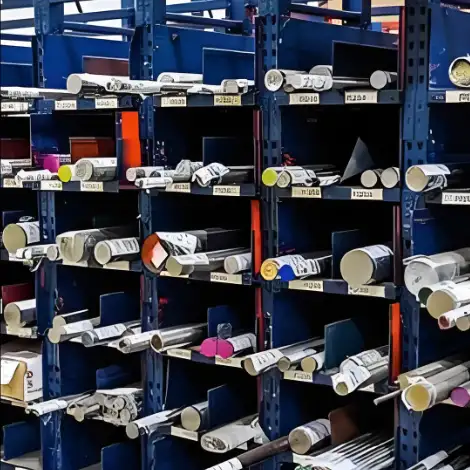
Applications Across Industries
Why do engineers favor Inconel 718? Simply put: performance and longevity.
🚀 Aerospace Industry
-
Turbine disks and blades
-
Rocket motors and thrust chambers
-
Aircraft fasteners and frames
⚡ Power Generation
-
Nuclear fuel components
-
High-pressure steam generator tubes
-
Bolting and structural supports in reactors
⛽ Oil and Gas / Petrochemical
-
Wellhead equipment
-
Downhole shafting
-
Heat exchangers and flare systems
⚙️ Automotive / Motorsport
-
Exhaust valves in performance engines
-
Turbocharger components
In these fields, exposure to corrosive fluids, high loads, and extreme temperatures is common. That’s where Inconel 718 thrives.
MWalloys Inconel 718 Bars: Product Range and Standards
Our Inconel 718 bars are precision-machined and heat-treated to meet international requirements.
✅ Specifications
| Parameter | Specification |
|---|---|
| Brand | MWalloys |
| Material Grade | Inconel Alloy 718 (UNS N07718) |
| Diameter Range | 6 mm – 300 mm |
| Length | Up to 6 meters |
| Tolerance | h9, h11 available |
| Surface Finish | Peeled, Ground, Bright, Black |
| Standards | ASTM B637, AMS 5662, ISO 9723 |
| Heat Treatment | Solution Annealed + Aged |
Comparison Table: Inconel 718 vs Other Nickel Alloys
| Property | Inconel 718 | Inconel 625 | Hastelloy X | Titanium Grade 5 |
|---|---|---|---|---|
| Max. Service Temp (°C) | 700 | 650 | 1175 | 400 |
| Yield Strength (MPa) | 1035 | 480 | 360 | 880 |
| Weldability | Excellent | Good | Moderate | Good |
| Cost (2025 avg, $/kg) | 60–75 | 45–60 | 65–80 | 35–50 |
| Corrosion Resistance | High | Very High | High | Moderate |
Processing, Machinability & Heat Treatment
🛠️ Machinability
Machining Inconel 718 is difficult due to its work-hardening nature. However, with carbide tooling, low-speed operations, and proper coolant application, consistent performance can be achieved.
🔥 Heat Treatment Process
-
Solution Annealing: 980°C to 1010°C
-
Aging Treatment: 720°C for 8h, furnace cooled to 620°C, held for 8h
This two-step aging process forms gamma-double prime (γ'') and gamma-prime (γ') phases, leading to peak strength.
Certifications & International Standards
MWalloys provides full certification with each batch of Inconel 718 Bars, including:
-
ASTM B637
-
AMS 5662 / AMS 5663
-
EN 10204 3.1 / 3.2 mill test reports
-
ISO 9001:2015 Quality System
Additionally, we perform ultrasonic testing, eddy current testing, and PMI (Positive Material Identification) as per client request.
Global Pricing Overview (2025): China vs USA vs Europe
| Region | Price Range ($/kg) | Notes |
|---|---|---|
| China | 58–68 | Cost-effective for bulk; export lead time: 7–15 days |
| United States | 70–85 | Faster domestic shipping; higher labor cost |
| Europe | 72–90 | REACH-compliant; available in forged and annealed form |
Data based on 2025 market reports from Shanghai Metals Market (SMM) and MetalMiner USA.
Shipping costs and alloy surcharge rates may fluctuate with raw material (Nickel, Cobalt) indexes.
Packaging, Supply Chain, and MOQ
We take packaging seriously.
-
Export Packaging: Fumigated wooden crates or steel-strapped bundles
-
MOQ: 50 kg for regular sizes; custom orders negotiable
-
Lead Time: 10–20 working days (depends on size & stock)
-
Shipping Ports: Shanghai, Ningbo, Qingdao
We also offer third-party inspections from SGS, BV, or Intertek.
Frequently Asked Questions
Q1: What is the optimal aging cycle for Inconel 718 bars to achieve peak mechanical properties?
We recommend a two‑stage process: hold at 720 °C for 8 hours, then cool to 620 °C and hold another 8 hours. This promotes maximum γ″ precipitate formation, yielding up to a 25% increase in tensile strength over solution‑treated material.
Q2: How do you ensure consistent weld quality when fabricating Inconel 718 components?
We employ GTAW (TIG) with matching filler metal, strictly control interpass temperatures below 150 °C, and perform a post‑weld stress relief at 650 °C for 4 hours. These steps minimize grain coarsening and prevent hot‑cracking.
Q3: Which non‑destructive testing (NDT) methods are most effective for Inconel 718 bars?
-
Ultrasonic Testing to detect internal voids or inclusions
-
Dye Penetrant for locating surface cracks
-
PMI (Positive Material Identification) to verify alloy chemistry prior to machining
Q4: What machining practices optimize tool life and surface finish on Inconel 718 bars?
Use carbide or ceramic tooling, run at moderate speeds (<60 m/min), apply high‑pressure coolant, and keep the depth of cut <1 mm to limit work‑hardening and maintain a smooth finish.
Q5: Are there any environmental or operational limitations for Inconel 718 bars?
Avoid prolonged exposure above 700 °C in sulfur‑rich or chloridic environments, which can accelerate sulfidation and corrosion. For such services, Inconel 625 may be a better alternative due to its enhanced oxidation resistance.
Q6: How does MWalloys guarantee traceability and quality for each Inconel 718 bar shipment?
Every bar is laser‑engraved with its heat lot number, and shipped with a 3.1 or 3.2 EN 10204 inspection certificate. We maintain full batch records—including melt data, NDT reports, and material tests—in our ERP system for end‑to‑end traceability.

